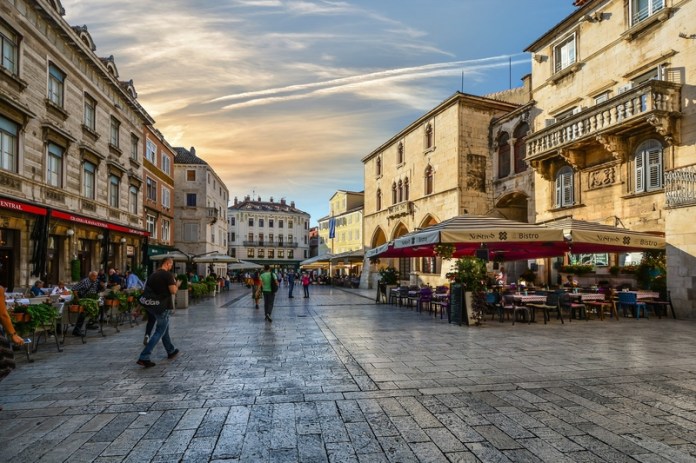For those of us who are born nomads, for whom traveling and never staying put at one place comes as second nature, the perennial problem always seems to be managing your cash flow and travel money effectively. Unless you belong to a country with a strong currency and are visiting a third world destination for your travels, there are always going to be moments when you might give up doing an activity you had in mind due to lack of funds.
Unfortunately when it comes to Europe, going around the continent is an expensive proposition for most of us who aren’t Europeans. Thus, if you’re planning a trip to Europe as a youngster or backpacker you can ensure that you have a ball of a time with a little bit of planning. Follow these five tips and you’ll surely squeeze out every Euro you spend to the maximum:

- As you move North it gets pricier
Most European countries may share the same currency (noticeable exceptions being Sweden, Denmark, and the UK), but that does not mean they are all equally expensive. Generally speaking, the more North you are in Europe, the more expensive it gets. Switzerland and Norway are perhaps, the most expensive countries. In general, the Southern European countries (barring the French Riviera) are cheaper, and Eastern Europe is the cheapest.
2. Carry your Cash

Image source: pexels.com
Most banks in Europe charge a fee for every international debit or credit card transaction you make. If the rate is high, you are better off making a rough calculation of how much cash you are likely to spend and debit it in one single transaction. Also, beware of currency exchange kiosks at airports, trains and bus stations. They usually offer the worst exchange rates. Instead, local shops or kiosks are a better option. If you are in the UK, you can even exchange currency at the post offices, which do not charge a commission on the transaction.
3. Spend light on Accommodation
There is so much to see in Europe that the only reason you need a hotel is to catch a few hours of sleep and refresh yourself. Thus, its best to stay in the low-cost accommodation. Europe has a brilliant network of youth hostels (some of which also allow older adults) and many of them are quite comfortable and happening. Checkout Hostelworld to find the best hostels in every country and if the possible book in advance.
4. Locate the Free Walking Tours
If you enjoy history, culture, and anecdotes, always check if the city you are visiting falls on Sandeman’s map or not. Sandemans offers a lively and fun walking tour in English in most European countries, and best of all, they are FREE. Well, almost. The guide will angle for a tip at the end, and most people on the tour do tip at least 5 euros/pounds. But even with that, it is one of the cheapest guided walks in Europe. For a review of free walking tours, click here.
5. Be Smart about where you choose to Eat

Image source: pexels.com
Eating in restaurants in most European countries can be very expensive. However, the departmental stores usually carry some excellent prepared meals and selections of bread and cheeses. Make a picnic lunch out of it instead of eating in restaurants. It is cheaper and will be more fun!
It is worthwhile to remember that most European cities are fairly relaxed about outsiders visiting their universities and eating in their cafeterias. The meals are quite subsidized, and for 5 to 10 euros, you can have a filling lunch. However, this does not work in London, where most universities are paranoid about who’s entering and exiting their doors.
As far as possible try avoiding eating at main attractions. As a rule of thumb, the nearer the restaurant is to the main city attractions, the more expensive it will be. Usually, the prices of restaurants drop considerably as you move further away from the city centres because such restaurants cater to the locals rather than tourists. This is particularly true for Prague. If you are looking for good restaurants in London near some famous tourist attractions, here are some recommendations.
Also, it’s probably worth remembering that there are many free museums in London and other places around Europe which you can make part of your trip to save on that precious cash. It is also advisable to do spend some quality time researching the internet to find cheap holidays and discounted travel deals that are always out there and its just a matter of being able to locate them.
Featured image source: pixabay.com





real handy tips!